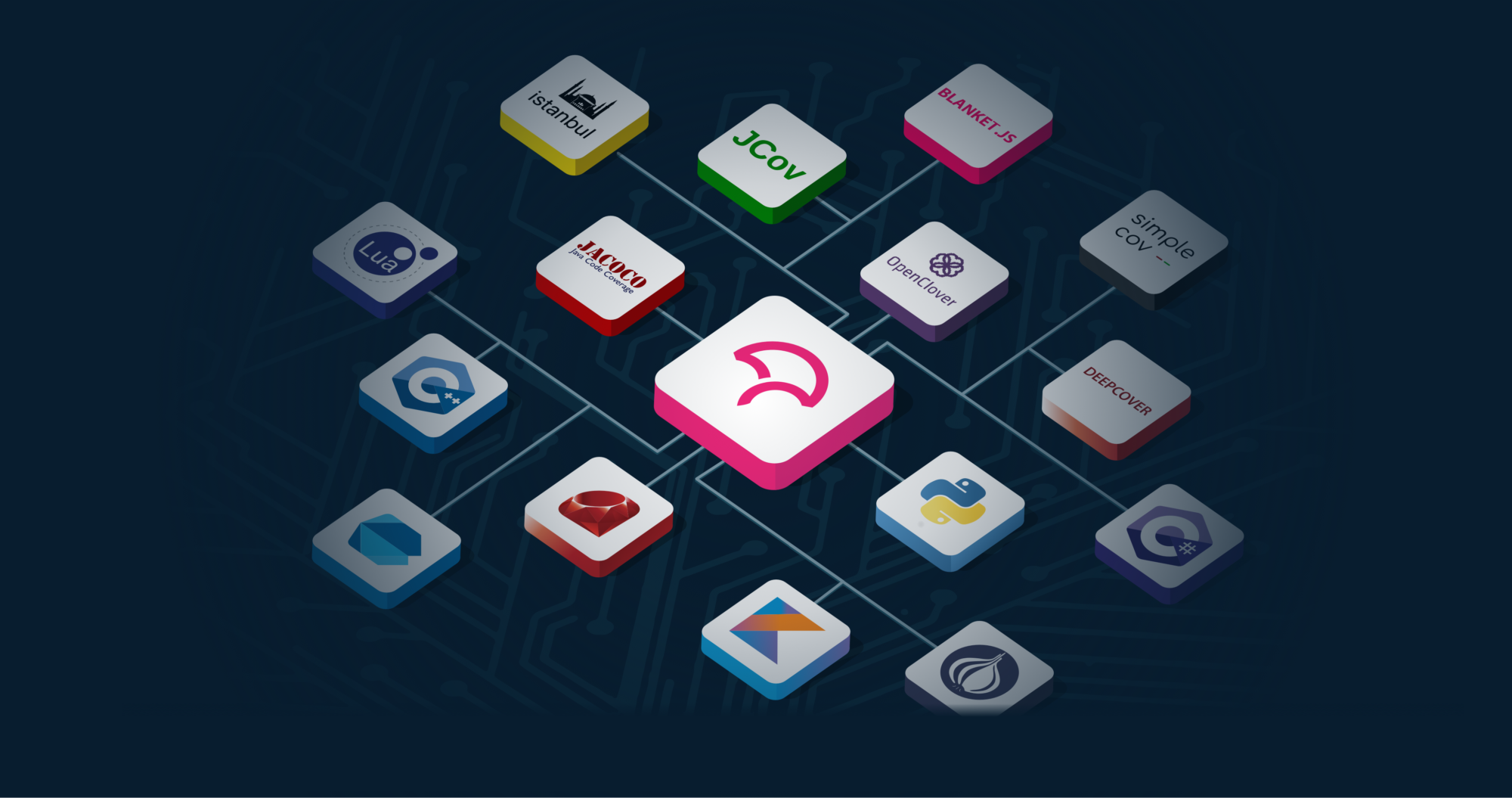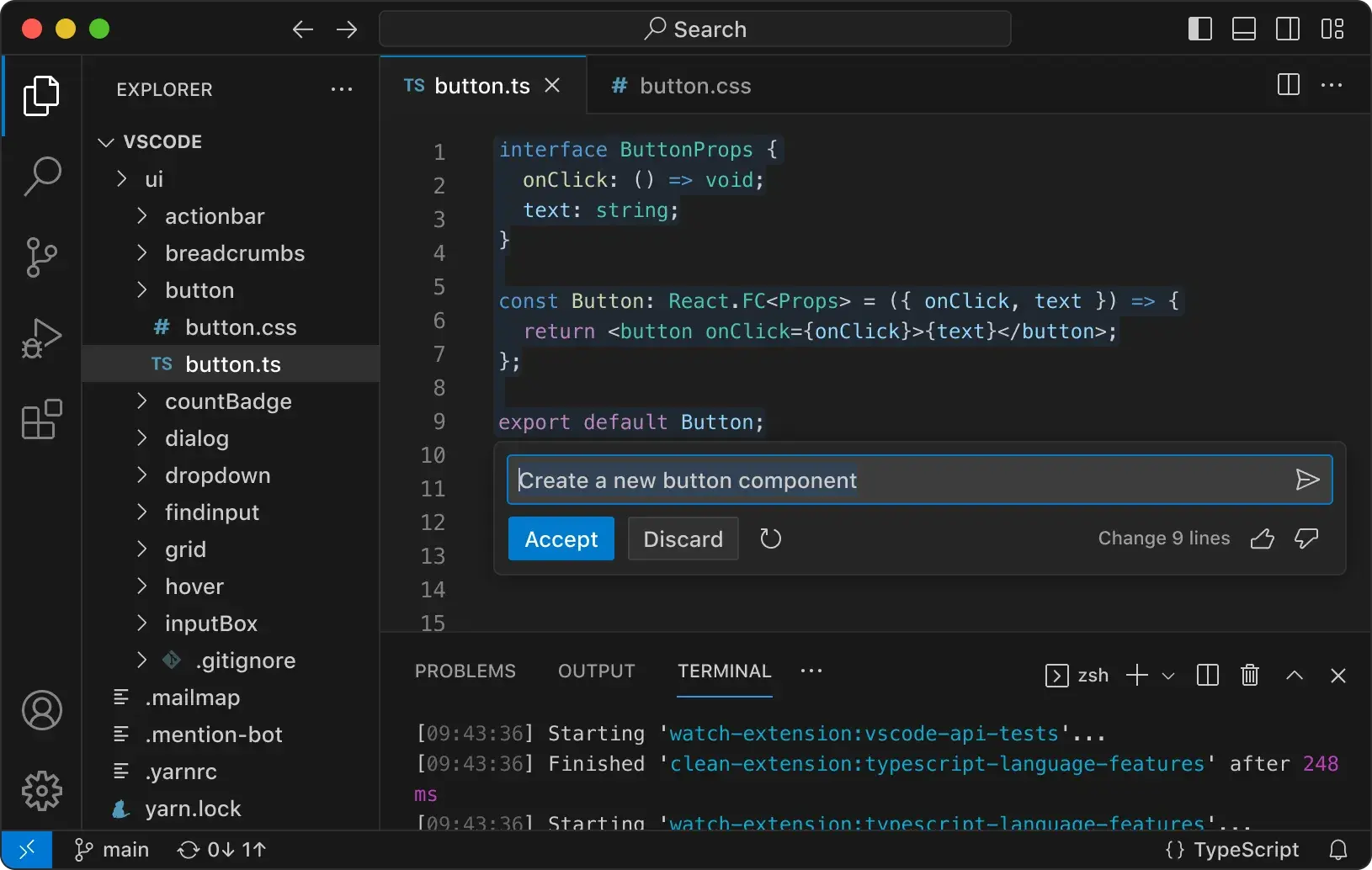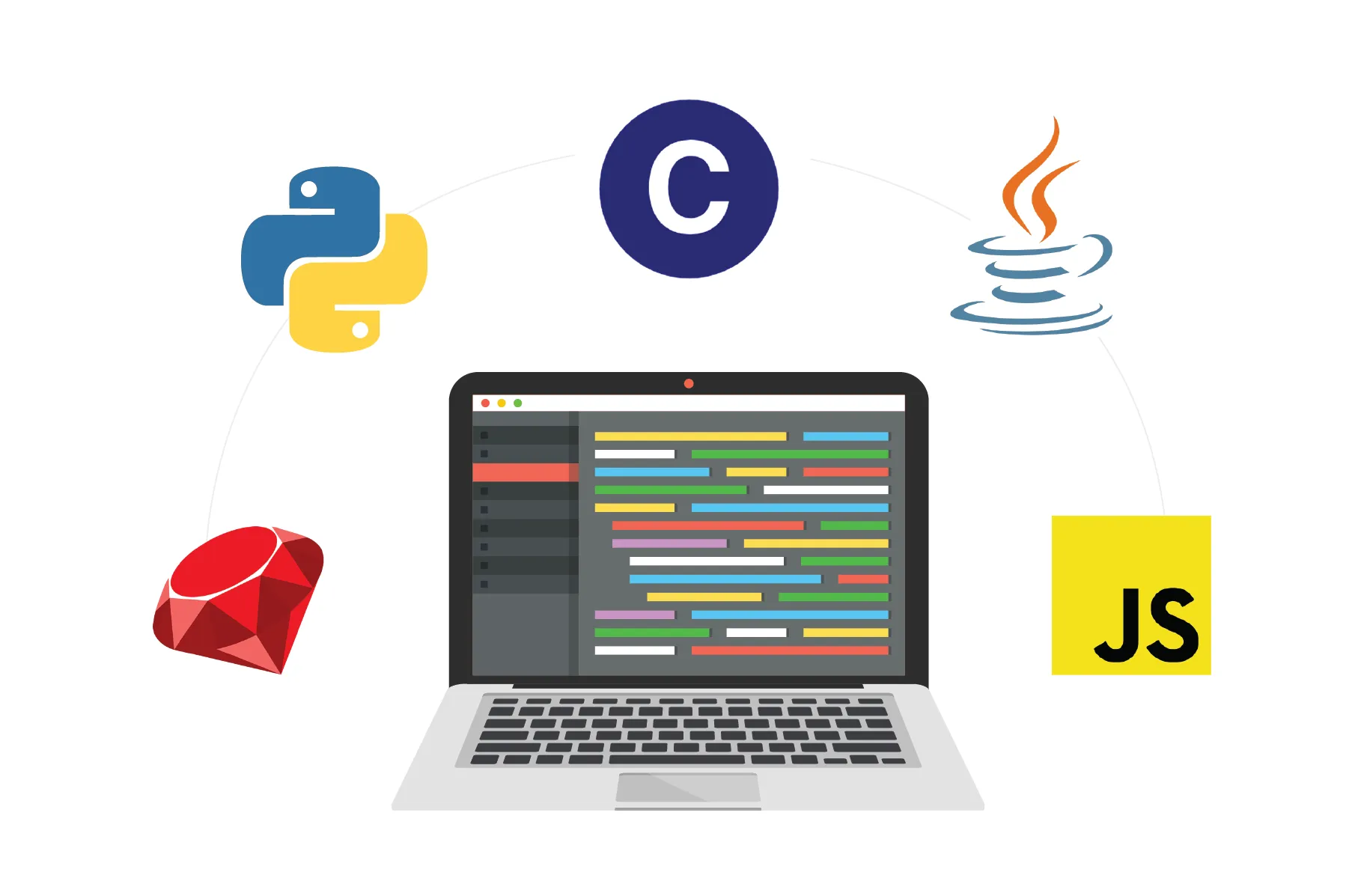In the ever-evolving landscape of software development, the right tools can make or break a developer’s productivity. The complexities of modern programming demand more than just a text editor and a compiler. Developers today rely on a suite of programming tools that streamline coding, testing, debugging, and collaboration. From integrated development environments (IDEs) to version control systems, code analyzers, and even cloud services, these tools are essential for creating high-quality, efficient, and secure applications.
With the vast array of programming tools available, choosing the best ones for your needs can be overwhelming. That’s why this guide aims to help developers of all experience levels—whether you’re a beginner starting with Python or an experienced full-stack developer working with microservices. Below is an in-depth look at over 120 programming tools, each categorized by its primary function to offer a comprehensive overview of the best options available.

Integrated Development Environments (IDEs) and Code Editors
One of the most critical tools in any developer’s arsenal is the Integrated Development Environment (IDE) or code editor. These environments provide a comprehensive suite of features such as syntax highlighting, code completion, debugging, and sometimes version control integration. Here are some of the most popular IDEs and code editors:
1. Visual Studio Code
VS Code, developed by Microsoft, is one of the most popular text editors for a wide range of programming languages. Its vast array of extensions, built-in Git integration, and customization options make it highly versatile. Whether you’re working with JavaScript, Python, or Go, VS Code is highly adaptable to any workflow.
2. JetBrains IntelliJ IDEA
Widely known for its support for Java, IntelliJ IDEA is a powerful IDE that offers advanced code analysis, refactoring tools, and smart code completion. It also supports a range of languages including Kotlin, Groovy, and Scala, making it a must-have for JVM developers.
3. Sublime Text
Sublime Text is a lightweight but powerful text editor favoured for its speed and simplicity. Despite its lightweight footprint, it offers a wide range of plugins to extend its functionality to support various languages and frameworks, including Python, JavaScript, and Ruby.
4. PyCharm
A specialized IDE for Python, PyCharm offers an excellent set of tools for Python developers. Features like integrated debugging, code inspections, and support for web development frameworks like Django and Flask make it a top choice for Python enthusiasts.
5. Atom
Atom, an open-source editor developed by GitHub, is loved for its customizability. It’s also known for having built-in Git control and package management, which allows users to add features on the go. Atom supports numerous programming languages and is suitable for developers working on web applications.
Version Control Systems and Tools
Version control is critical for maintaining code integrity and collaboration, especially in team settings. Managing versions of code across multiple developers can be challenging, but the following tools make it easier.
6. Git
No list of version control tools is complete without Git. This distributed version control system is used by nearly all developers, thanks to its flexibility and widespread adoption. Git allows teams to track changes, manage branches, and collaborate on code efficiently.
7. GitHub
GitHub is a cloud-based hosting service for Git repositories that offers tools for collaboration, project management, and even CI/CD integration. It’s one of the most popular platforms for open-source projects and private repositories.
8. GitLab
Similar to GitHub, GitLab offers Git repository hosting, CI/CD pipelines, and project management features. Its self-hosting option and robust DevOps capabilities make it a favourite for large organizations.
9. Bitbucket
Bitbucket is another Git repository hosting service that integrates seamlessly with Jira, making it a strong contender for development teams already using Atlassian tools. It offers Git and Mercurial version control systems, making it versatile for different workflows.
10. SourceTree
SourceTree is a free Git GUI client that simplifies the process of managing Git repositories. Its clean, user-friendly interface makes it easy for beginners to navigate complex Git workflows like branching, merging, and resolving conflicts.

Debugging and Profiling Tools
Bugs are an inevitable part of the development process, and debugging tools help developers track down and fix errors in their code. Profiling tools, on the other hand, are essential for analyzing application performance.
11. GDB (GNU Debugger)
GDB is one of the most widely used debuggers for C and C++ developers. It allows you to inspect the state of your application while it’s running, set breakpoints, and step through the code to identify issues.
12. Chrome DevTools
For web developers, Chrome DevTools is indispensable. This built-in set of web authoring and debugging tools allows developers to edit, debug, and analyze HTML, CSS, and JavaScript directly in the browser.
13. Xdebug
Xdebug is a PHP extension for debugging and profiling. It supports stack traces, breakpoints, and variable inspection, making it a go-to tool for PHP developers who need deep insights into how their code executes.
14. Valgrind
Valgrind is a performance monitoring tool that helps developers find memory leaks and manage performance bottlenecks in C, C++, and other languages. It’s particularly useful for profiling memory-intensive applications.
15. LLDB
Part of the LLVM project, LLDB is a modern debugger that supports multiple programming languages, including C, C++, and Swift. Its speed and scriptability make it a favourite among macOS and iOS developers.

Continuous Integration/Continuous Deployment (CI/CD) Tools
Automation plays a significant role in modern software development. CI/CD tools ensure that code changes are automatically tested and deployed, minimizing manual intervention.
16. Jenkins
Jenkins is one of the most popular open-source automation servers for building, testing, and deploying applications. Its vast plugin ecosystem allows it to integrate with many tools, making it adaptable to various CI/CD workflows.
17. Travis CI
Travis CI is a cloud-based CI service that integrates with GitHub repositories. It automatically builds and tests code with every commit, ensuring that your software remains functional even as you add new features.
18. CircleCI
CircleCI offers both cloud-based and on-premises CI/CD services. Its easy integration with GitHub and Bitbucket, along with its fast build times, make it a preferred choice for teams looking to speed up their development cycles.
19. GitLab CI/CD
Built into GitLab, this CI/CD platform is fully integrated with Git repository management, making it a strong option for teams already using GitLab for version control. It offers features like automated builds, testing, and deployments.
20. TeamCity
JetBrains TeamCity is a general-purpose CI/CD tool that supports many programming languages and integrates well with both GitHub and GitLab. It offers powerful build configuration options and an intuitive user interface.

Testing Frameworks and Tools
Testing is a critical aspect of development, ensuring that your code works as expected and is free of bugs. Here are some of the top testing tools used across various programming languages and environments.
21. Selenium
Selenium is a powerful tool for automating web browsers, commonly used for testing web applications. Its support for multiple programming languages like Java, Python, and JavaScript makes it a flexible tool for developers.
22. JUnit
JUnit is the de facto standard for unit testing in Java. With its simple yet powerful framework, JUnit allows developers to write and run repeatable tests, ensuring that individual units of code behave as expected.
23. Mocha
Mocha is a JavaScript test framework running on Node.js, known for its simplicity and flexibility. It’s often paired with assertion libraries like Chai to create robust test suites for web applications.
24. PHPUnit
PHPUnit is the most widely used testing framework for PHP developers. It offers tools for unit testing, assertions, and mocks, making it easier to ensure that individual components of your PHP applications work as intended.
25. Jasmine
Jasmine is another popular testing framework for JavaScript, designed for behavior-driven development (BDD). It’s known for being easy to set up and integrate into existing projects, allowing developers to write clean and maintainable tests.

Collaboration and Project Management Tools
Software development is rarely a solo activity. Team collaboration and project management tools help developers and teams stay organized, track progress, and communicate effectively.
26. Jira
Developed by Atlassian, Jira is one of the most widely used project management tools for software development teams. It offers features like bug tracking, agile project management, and integration with other Atlassian products like Bitbucket and Confluence.
27. Trello
Trello is a simpler project management tool that uses boards, lists, and cards to help teams organize tasks. It’s great for smaller teams or individual developers who prefer a lightweight approach to project management.
28. Slack
Slack is a collaboration tool that has become ubiquitous in the software development world. It allows teams to communicate via channels, and direct messages and integrates with other development tools like GitHub and Jenkins to provide notifications.
29. Asana
Asana is another project management tool that offers more structured workflows than Trello. Its focus on task assignments, timelines, and goals makes it a great choice for teams looking to track progress in a more granular way.
30. Microsoft Teams
Microsoft Teams combines chat, video conferencing, and file sharing into one platform. It’s highly integrated with other Microsoft products like Azure DevOps, making it a strong choice for developers working within the Microsoft ecosystem.

Cloud Services and Platforms
Cloud computing has revolutionized how software is developed, deployed, and maintained. It provides scalable, flexible, and cost-effective solutions for hosting applications, managing databases, and integrating services. For developers, cloud platforms and services allow rapid prototyping and deployment while eliminating the need to manage physical infrastructure. Here are some of the best cloud platforms and services available:
31. Amazon Web Services (AWS)
AWS is the most comprehensive cloud platform, offering a wide range of services from computing power to database storage. Services like EC2 (Elastic Compute Cloud) and Lambda (serverless computing) allow developers to build scalable applications quickly. With its vast ecosystem, AWS supports a multitude of development tools, frameworks, and programming languages.
32. Microsoft Azure
Azure, Microsoft’s cloud computing platform, provides a range of solutions for building, deploying, and managing applications. Azure integrates seamlessly with Microsoft’s development tools like Visual Studio, making it easy for .NET developers to deploy apps directly to the cloud. It also supports multiple programming languages, databases, and frameworks.
33. Google Cloud Platform (GCP)
GCP is known for its innovative solutions like BigQuery (data analytics), Kubernetes (container orchestration), and TensorFlow (machine learning). It offers a developer-friendly environment for building, testing, and deploying applications. GCP’s integration with Google services and its powerful APIs make it a great choice for data-heavy applications.
34. Heroku
Heroku is a cloud platform that simplifies application deployment. It’s known for its ease of use and “push-to-deploy” feature, which allows developers to deploy applications directly from GitHub. Heroku is ideal for developers looking for a streamlined platform to host small to medium-sized applications with minimal infrastructure management.
35. DigitalOcean
DigitalOcean provides cloud infrastructure tailored for developers. Its droplet-based system makes it easy to spin up virtual servers in seconds. DigitalOcean is favoured for its simplicity and affordability, making it an excellent choice for small startups and individual developers.
36. IBM Cloud
IBM Cloud offers a robust suite of cloud services, including artificial intelligence, blockchain, and quantum computing. With support for multiple programming languages, databases, and DevOps tools, it’s an enterprise-grade platform for developers working on large-scale, highly regulated projects.
37. Netlify
Netlify is a platform designed for modern web development workflows, particularly for static websites and serverless functions. Its continuous deployment feature from Git repositories (like GitHub and GitLab) makes it a popular choice for front-end developers who need a fast and reliable hosting solution.
38. Firebase
Firebase is a mobile and web application development platform from Google. It offers a suite of services such as real-time databases, user authentication, and hosting. Firebase is particularly popular among mobile developers who need to build real-time apps with features like messaging and notifications.
39. Vercel
Vercel is a cloud platform built for front-end frameworks and static sites. Known for its close integration with Next.js, Vercel provides fast builds and serverless functions, making it ideal for front-end developers looking to deploy modern, performance-focused web applications.
40. Linode
Linode is a cloud hosting platform that offers high-performance SSD Linux servers. It’s an affordable and simple solution for developers looking for a no-frills, yet powerful hosting service. Linode provides a range of tools and services, from virtual machines to Kubernetes clusters.

Database Management Tools
Databases are the backbone of most applications, and choosing the right database management tool is critical for performance, scalability, and security. From relational databases like MySQL to NoSQL databases like MongoDB, here are some essential tools to manage your data effectively.
41. MySQL
MySQL is one of the most popular open-source relational database management systems (RDBMS). It’s widely used for web applications and supports a variety of programming languages like PHP, Python, and Java. MySQL’s scalability and reliability make it a solid choice for both small and large-scale applications.
42. PostgreSQL
PostgreSQL is an advanced, open-source relational database known for its performance, scalability, and support for complex queries. Unlike some other relational databases, PostgreSQL supports features like full-text search, JSON, and GIS, making it ideal for a wide range of applications.
43. MongoDB
MongoDB is a NoSQL database designed for applications that require high scalability and performance. It stores data in flexible, JSON-like documents, which allows for greater agility in handling diverse data types. MongoDB is especially popular for building real-time web applications.
44. Redis
Redis is an in-memory key-value store used for caching and real-time data processing. It is extremely fast and supports a variety of data structures like strings, hashes, and sets. Redis is commonly used as a cache to reduce the load on primary databases or for real-time analytics.
45. SQLite
SQLite is a lightweight, self-contained database engine used in many mobile and embedded applications. Unlike MySQL or PostgreSQL, SQLite is serverless, which means it doesn’t require a separate database server to operate, making it perfect for local storage in mobile apps.
46. Microsoft SQL Server
SQL Server is Microsoft’s enterprise-grade relational database management system. It offers excellent support for business intelligence, advanced querying, and data integration. SQL Server is typically used in enterprise environments where high performance and reliability are critical.
47. Firebase Realtime Database
Firebase Realtime Database is a NoSQL cloud database that synchronizes data between clients in real-time. It’s a popular choice for mobile and web apps that require real-time user interaction, such as chat applications, collaborative tools, or live data feeds.
48. Couchbase
Couchbase is a distributed NoSQL database designed for interactive web and mobile applications. It combines the scalability of NoSQL with the power of SQL-like querying, making it a versatile option for handling complex, data-heavy applications.
49. Amazon RDS
Amazon RDS (Relational Database Service) is a cloud-based service that simplifies the setup, operation, and scaling of relational databases. It supports several database engines, including MySQL, PostgreSQL, and SQL Server, and offers features like automatic backups, scaling, and patch management.
50. Google BigQuery
BigQuery is a fully managed, serverless data warehouse by Google, designed for fast SQL queries using Google’s infrastructure. It is highly scalable and optimized for large datasets, making it an excellent tool for big data analysis and machine learning applications.

Containers and Container Orchestration Tools
Containers allow developers to package applications with all their dependencies, ensuring consistency across different environments. Container orchestration tools manage the deployment, scaling, and networking of these containers, making it easier to manage complex applications.
51. Docker
Docker is the most popular containerization platform, allowing developers to package applications into containers that can run anywhere. Docker ensures that applications work consistently across different environments, from a developer’s laptop to production servers.
52. Kubernetes
Kubernetes is an open-source container orchestration platform developed by Google. It automates the deployment, scaling, and management of containerized applications. Kubernetes is highly scalable and is widely used in enterprise environments to manage complex, distributed systems.
53. Docker Swarm
Docker Swarm is Docker’s native clustering and orchestration tool. While not as feature-rich as Kubernetes, it offers a simpler solution for developers who want to manage a small cluster of containers without the overhead of learning Kubernetes.
54. OpenShift
OpenShift, developed by Red Hat, is a Kubernetes-based container platform with added features for enterprise environments. It simplifies the development, deployment, and scaling of containerized applications and integrates seamlessly with CI/CD pipelines.
55. Rancher
Rancher is a complete Kubernetes management platform that simplifies the deployment and management of Kubernetes clusters. It offers features like multi-cluster management, monitoring, and integrated security, making it ideal for teams working with multiple Kubernetes clusters.
56. Amazon ECS (Elastic Container Service)
Amazon ECS is a fully managed container orchestration service by AWS. It simplifies the process of running, scaling, and securing Docker containers. ECS is deeply integrated with other AWS services, making it a great option for developers already using the AWS ecosystem.
57. Amazon EKS (Elastic Kubernetes Service)
Amazon EKS is a fully managed Kubernetes service provided by AWS. It allows developers to deploy, manage, and scale Kubernetes applications on AWS without the complexity of managing their own Kubernetes infrastructure.
58. Google Kubernetes Engine (GKE)
GKE is Google Cloud’s managed Kubernetes service. It simplifies the process of running Kubernetes on Google Cloud and provides advanced features like auto-scaling, security, and integration with other Google Cloud services.
59. Azure Kubernetes Service (AKS)
Azure Kubernetes Service is a fully managed Kubernetes service on Azure. It simplifies Kubernetes cluster management and integrates seamlessly with Azure DevOps, making it a strong choice for teams already invested in the Microsoft ecosystem.
60. Mesos
Apache Mesos is a distributed systems kernel that abstracts CPU, memory, storage, and other compute resources, enabling dynamic resource sharing across multiple applications. It supports container orchestration via Marathon, making it a good choice for large, distributed applications.

API Development and Testing Tools
APIs (Application Programming Interfaces) are the backbone of modern applications, allowing different software systems to communicate. Developing and testing APIs efficiently is critical for ensuring robust integration between various systems and services. Here are some top API tools for developers:
61. Postman
Postman is one of the most popular tools for developing and testing APIs. It provides an intuitive interface for creating API requests, organizing them into collections, and automating tests. Postman also offers collaboration features, making it easy for teams to work together on API development.
62. Swagger
Swagger is an open-source framework that helps developers design, build, document, and consume RESTful web services. It offers tools like Swagger Editor for API documentation and Swagger UI for interactive API testing.
63. Insomnia
Insomnia is an open-source API client that makes it easy to debug, test, and organize APIs. It supports REST, GraphQL, and SOAP APIs, and offers features like code generation, environments, and plugins to streamline the API development process.
64. SoapUI
SoapUI is a popular tool for testing SOAP and REST web services. It offers advanced features like automated functional testing, load testing, and security testing, making it a comprehensive solution for API testing.
65. Apigee
Apigee is Google Cloud’s API management platform, designed to help developers build, deploy, and manage APIs. It offers features like traffic management, security, and analytics, making it a strong choice for enterprises that need to manage large-scale API infrastructures.

Security Tools for Developers
In an age where data breaches and cyberattacks are commonplace, security is a critical concern for developers. Securing code, networks, and data requires an understanding of various security tools that can help identify vulnerabilities, encrypt data, and ensure the integrity of applications. Whether you’re developing a small web app or managing enterprise-grade infrastructure, having the right security tools is essential for building robust, secure applications. Below are some of the best security tools for developers.
66. OWASP ZAP (Zed Attack Proxy)
OWASP ZAP is one of the most popular open-source security tools used for identifying vulnerabilities in web applications. It allows developers to test the security of their applications by simulating various attacks. ZAP is user-friendly and integrates with various CI/CD pipelines, making it ideal for both beginners and experienced security professionals.
67. Burp Suite
Burp Suite is a comprehensive web vulnerability scanner designed for security professionals and developers. It helps in finding and exploiting security vulnerabilities in web applications, including SQL injections, XSS (cross-site scripting), and CSRF (cross-site request forgery). Burp Suite’s powerful toolset and intuitive interface make it a staple in penetration testing.
68. SonarQube
SonarQube is an open-source platform for continuous inspection of code quality. It performs automatic code reviews to detect bugs, vulnerabilities, and code smells in more than 25 programming languages. SonarQube’s ability to integrate with popular CI tools ensures that code security remains a focus throughout the development lifecycle.
69. Snyk
Snyk is a developer-first security tool that focuses on identifying and fixing vulnerabilities in open-source dependencies and container images. It integrates seamlessly with Git repositories, CI/CD pipelines, and container platforms to scan and secure code as it’s being developed, making it easier to fix vulnerabilities early in the process.
70. Veracode
Veracode is a cloud-based application security platform that provides comprehensive testing for identifying and fixing security vulnerabilities. It offers static analysis, dynamic analysis, and penetration testing tools, helping developers secure their applications during development and after deployment.
71. Checkmarx
Checkmarx is another static code analysis tool that scans code for security vulnerabilities as it’s being written. It supports multiple programming languages and integrates with development environments like Visual Studio, Eclipse, and IntelliJ IDEA. Checkmarx is known for its detailed reports and ability to identify complex security issues.
72. Nessus
Nessus is a widely used vulnerability scanner that helps identify vulnerabilities, configuration issues, and compliance violations. Though primarily used for network security, Nessus is also valuable for developers working on applications that require secure configurations and compliance with industry standards.
73. Wireshark
Wireshark is a network protocol analyzer that captures and displays data travelling through a network in real-time. Developers use it to debug network-related issues and to inspect security vulnerabilities in network traffic. It’s an essential tool for identifying malicious traffic and ensuring secure network configurations.
74. HashiCorp Vault
Vault by HashiCorp is a tool for securely storing and managing sensitive information like API keys, passwords, certificates, and encryption keys. It provides a secure way to access secrets and controls access through fine-grained policies, making it a go-to tool for developers working on applications that handle sensitive data.
75. WhiteSource
WhiteSource is a security tool that helps developers manage and secure open-source libraries and components in their projects. It provides detailed insights into potential vulnerabilities, licensing risks, and compliance issues, allowing developers to mitigate security risks related to third-party libraries.

Mobile Development Platforms and Tools
Mobile app development has grown exponentially with the increasing demand for mobile-first experiences. Whether developing for iOS, Android, or cross-platform environments, having the right mobile development tools can significantly enhance productivity and performance. The following tools are essential for building, testing, and deploying mobile applications.
76. Android Studio
Android Studio is Google’s official IDE for Android app development. Built on IntelliJ IDEA, it provides powerful features like code completion, debugging, and real-time profilers. Android Studio supports both Java and Kotlin, giving developers the flexibility to choose their preferred language for Android development.
77. Xcode
Xcode is Apple’s integrated development environment (IDE) for building applications for iOS, macOS, watchOS, and tvOS. It includes everything developers need to create apps, including a code editor, debugging tools, and an interface builder. Xcode supports Swift and Objective-C, and its deep integration with Apple’s ecosystem makes it indispensable for iOS developers.
78. React Native
React Native is a popular open-source framework for building cross-platform mobile apps using JavaScript and React. It allows developers to create native mobile apps for iOS and Android from a single codebase, making it a cost-effective solution for teams looking to build apps for both platforms.
79. Flutter
Flutter, developed by Google, is an open-source UI software development kit (SDK) that allows developers to build natively compiled applications for mobile, web, and desktop from a single codebase. It uses Dart as its primary programming language and provides a rich set of customizable widgets to create beautiful, responsive apps.
80. Swift
Swift is Apple’s modern programming language for iOS and macOS development. It’s designed to be fast, safe, and expressive. Swift’s growing ecosystem and strong community support make it the go-to language for developers working within Apple’s platforms.
81. Kotlin
Kotlin is a modern programming language for Android development that is fully interoperable with Java. It has quickly become the preferred language for Android developers due to its concise syntax, improved safety features, and seamless integration with Android Studio.
82. Xamarin
Xamarin, now part of Microsoft’s Visual Studio, allows developers to build cross-platform mobile apps using C#. It provides access to platform-specific APIs and features, and with its robust ecosystem of libraries and tools, Xamarin enables developers to write shared code for iOS, Android, and Windows apps.
83. PhoneGap / Apache Cordova
PhoneGap (also known as Apache Cordova) is an open-source mobile development framework that allows developers to build mobile apps using HTML5, CSS3, and JavaScript. It’s ideal for web developers who want to create mobile apps without learning native languages like Swift or Java.
84. Ionic
Ionic is a popular framework for building cross-platform mobile apps using web technologies like HTML, CSS, and JavaScript. It works well with Angular, React, and Vue, and offers a large library of pre-built components and plugins, making it a great choice for developers building hybrid apps.
85. Appcelerator Titanium
Appcelerator Titanium is a mobile development platform that allows developers to create native apps using JavaScript. It compiles JavaScript code into native code, ensuring high performance while maintaining the ease of use that comes with web technologies.
86. Firebase
Firebase, by Google, is more than just a backend service—it’s a full suite of tools for building mobile and web apps. Firebase offers real-time databases, user authentication, cloud storage, and messaging, which are all integrated with ease into mobile applications. Firebase’s analytics, performance monitoring, and A/B testing tools make it ideal for mobile developers looking to optimize their apps.
87. TestFlight
TestFlight is Apple’s platform for beta testing iOS apps. It allows developers to distribute pre-release versions of their apps to testers and receive valuable feedback before the app’s official release. TestFlight’s integration with Xcode and the App Store simplifies the beta testing process for iOS developers.
88. Genymotion
Genymotion is a popular Android emulator used for developing and testing Android apps. It offers a fast, reliable virtual environment for running Android apps across different devices and versions of the Android operating system. Its ease of use and compatibility with popular IDEs like Android Studio make it a valuable tool for Android developers.
89. Appium
Appium is an open-source tool for automating native, hybrid, and mobile web applications across iOS and Android. It allows developers to write tests in various programming languages like Java, JavaScript, and Python, making it a flexible option for mobile testing.
90. Bitrise
Bitrise is a continuous integration and delivery (CI/CD) platform designed for mobile developers. It offers pre-built workflows and integrations with popular tools like GitHub, GitLab, and Slack, allowing developers to automate testing and deployment processes.

Performance Monitoring and Crash Reporting Tools
Tracking the performance and stability of your application in the real world is essential for maintaining a high-quality user experience. Performance monitoring and crash reporting tools help developers detect and resolve issues before they negatively impact users.
91. New Relic
New Relic is a performance monitoring tool that provides deep insights into how applications perform in real time. With support for both web and mobile apps, New Relic allows developers to track metrics like response times, throughput, and error rates, helping identify performance bottlenecks and issues.
92. Sentry
Sentry is a real-time error-tracking tool that helps developers monitor and fix crashes in both web and mobile applications. It provides detailed reports on errors, including stack traces, to help developers quickly identify and resolve issues. Sentry’s support for multiple platforms and languages makes it a versatile tool for any developer.
93. Crashlytics
Crashlytics, part of the Firebase suite, is a powerful crash-reporting tool for mobile apps. It provides detailed reports on app crashes and non-fatal errors, allowing developers to track and fix issues that affect the user experience. Crashlytics is especially popular among iOS and Android developers for its ease of integration.
94. Datadog
Datadog is a comprehensive monitoring and analytics tool for cloud-scale applications. It helps developers track application performance, infrastructure, logs, and more. With its ability to integrate with over 400 technologies, Datadog provides end-to-end visibility across an entire tech stack, making it ideal for performance monitoring.
95. Raygun
Raygun is an error, crash, and performance monitoring tool that provides detailed diagnostics for web and mobile applications. Raygun’s actionable insights help developers pinpoint and resolve performance issues, improve load times, and eliminate bugs.
96. Bugsnag
Bugsnag is an error monitoring tool that helps developers identify, prioritize, and fix bugs in their applications. Its detailed error reports, performance monitoring, and integration with various platforms make it a powerful tool for improving app stability and performance.
97. Prometheus
Prometheus is an open-source monitoring and alerting toolkit that’s widely used for monitoring cloud-native and microservices architectures. It collects metrics, stores them in a time-series database, and provides powerful querying capabilities. Prometheus is ideal for developers working with containerized applications and Kubernetes environments.
98. Grafana
Grafana is a powerful open-source platform for monitoring and observability. It allows developers to visualize metrics collected by Prometheus or other data sources in real time, offering detailed insights into system performance and health. Grafana’s customizable dashboards make it easy for developers to track key performance metrics.
99. LogRocket
LogRocket is a session replay and performance monitoring tool for web applications. It records everything a user does on your app, allowing developers to replay issues and diagnose errors. This detailed insight into user behaviour helps developers understand how bugs occur and how to fix them.
100. Dynatrace
Dynatrace is an all-in-one performance monitoring platform that provides real-time insights into application performance, infrastructure health, and user experience. Its AI-powered analytics help developers identify issues before they impact users, making it an essential tool for enterprise-level applications.

Front-End Frameworks and Libraries
In modern web development, front-end frameworks and libraries play a critical role in building responsive, dynamic, and highly interactive user interfaces. These tools provide pre-built components, utilities, and architectures that enable developers to focus on functionality and aesthetics rather than building everything from scratch. Below are some of the most popular front-end frameworks and libraries that developers rely on to create cutting-edge web applications.
101. React
React is a popular JavaScript library developed by Facebook for building user interfaces, particularly single-page applications (SPAs). React’s component-based architecture allows developers to build reusable UI elements and manage the state efficiently. React’s extensive ecosystem, including tools like React Router and Redux, makes it a go-to choice for front-end development.
102. Angular
Angular is a comprehensive front-end framework developed by Google for building dynamic web applications. It is known for its robust tooling, two-way data binding, dependency injection, and strong support for developing complex SPAs. Angular is ideal for building large-scale enterprise applications due to its scalability and powerful CLI (Command Line Interface).
103. Vue.js
Vue.js is an open-source JavaScript framework for building UIs and single-page applications. It’s popular for its simplicity, flexibility, and ease of integration with existing projects. Vue’s reactive data binding and component-based architecture make it an excellent choice for both beginners and experienced developers who need a lightweight framework.
104. Svelte
Svelte is a relatively new front-end framework that shifts much of the work traditionally done in the browser to compile time. This results in smaller bundle sizes and faster performance. Unlike other frameworks, Svelte doesn’t use a virtual DOM, making it a compelling option for developers focused on performance optimization.
105. Bootstrap
Bootstrap is the most widely used CSS framework for developing responsive, mobile-first websites. It offers a wide array of pre-built components, such as forms, buttons, and navigation elements, as well as a grid system for layout design. Bootstrap’s ease of use and robust documentation make it a top choice for developers looking to quickly design responsive interfaces.
106. Tailwind CSS
Tailwind CSS is a utility-first CSS framework that allows developers to build custom designs without leaving their HTML. It offers a wide range of utility classes that simplify the styling process. Tailwind’s flexibility and low-level control over the appearance of elements make it popular among developers who want more custom design control without writing CSS from scratch.
107. Foundation
Foundation by Zurb is a responsive front-end framework designed for building mobile-first websites and applications. It provides a wide range of customizable UI components and a flexible grid system. Foundation is known for its strong emphasis on accessibility, making it a good choice for developers looking to build inclusive web experiences.
108. Material-UI
Material-UI is a popular React component library that implements Google’s Material Design principles. It provides a set of pre-styled components, such as buttons, cards, and dialogues, that can be easily customized and used in React applications. Material-UI is ideal for developers looking to build apps with a consistent, modern design language.
109. Bulma
Bulma is a modern CSS framework based on Flexbox, making it ideal for creating responsive and flexible layouts. It’s lightweight and easy to use, offering a clean and minimalistic design system. Developers often choose Bulma for its simplicity and ease of integration into existing projects.
110. Semantic UI
Semantic UI is a CSS framework that focuses on human-friendly HTML. It uses simple, semantic class names like “ui button” or “ui grid” to create components, making it highly readable and easy to use. Its intuitive structure is especially appreciated by developers looking for a semantic, declarative approach to styling their web pages.

DevOps Tools and Platforms
DevOps is a key practice in modern software development, merging development and operations to enable faster, more reliable releases. DevOps tools help automate workflows, improve collaboration, and streamline the continuous integration/continuous delivery (CI/CD) pipeline. Below are some of the essential DevOps tools that developers rely on for improving software delivery and operations.
111. Docker
Docker is the leading containerization platform, allowing developers to package applications and their dependencies into containers that can run consistently across different environments. Docker ensures that code works the same way in development, testing, and production, making it a critical tool for modern DevOps workflows.
112. Kubernetes
Kubernetes is a container orchestration platform that automates the deployment, scaling, and management of containerized applications. It’s widely used in large-scale environments, providing powerful tools for managing distributed applications. Kubernetes is the backbone of many modern cloud-native architectures.
113. Jenkins
Jenkins is a widely adopted open-source automation server that supports CI/CD pipelines. It enables developers to build, test, and deploy applications automatically, making it easier to release code quickly and efficiently. Jenkins’ vast plugin ecosystem makes it flexible and adaptable to a wide range of DevOps workflows.
114. Ansible
Ansible is an open-source automation tool for configuration management, application deployment, and task automation. It uses simple YAML syntax for writing playbooks, making it accessible to developers and system administrators alike. Ansible’s agentless architecture simplifies the setup and management of large-scale systems.
115. Terraform
Terraform, developed by HashiCorp, is an infrastructure-as-code (IaC) tool that allows developers to define and provision infrastructure using a declarative configuration language. It supports a wide range of cloud providers, including AWS, Azure, and Google Cloud, making it an essential tool for automating cloud infrastructure.
116. Puppet
Puppet is a configuration management tool that automates the provisioning, configuration, and management of IT infrastructure. Puppet allows developers to define infrastructure as code, making it easier to manage large-scale environments with consistent and repeatable configurations.
117. Chef
Chef is another popular configuration management tool that automates the deployment and management of infrastructure. It uses a Ruby-based DSL for defining configurations, and its strong support for automation and scaling makes it a staple in many DevOps workflows.
118. CircleCI
CircleCI is a cloud-based CI/CD tool that helps developers automate the testing and deployment of their code. It integrates seamlessly with GitHub and Bitbucket, allowing teams to build, test, and deploy applications with every code commit. CircleCI’s fast build times and customizable workflows make it a popular choice for agile teams.
119. Travis CI
Travis CI is a continuous integration service that integrates with GitHub to automatically build and test code with every commit. It’s widely used in open-source projects and provides a simple configuration setup using YAML files, making it accessible to teams looking for an easy-to-use CI tool.
120. Azure DevOps
Azure DevOps is a set of development tools provided by Microsoft for managing software development projects. It includes features like Git repositories, CI/CD pipelines, and testing tools. Azure DevOps integrates deeply with the Microsoft ecosystem and is favoured by teams using Visual Studio and other Microsoft technologies.
121. GitLab CI/CD
GitLab CI/CD is a powerful feature integrated into the GitLab platform that allows developers to automate the testing, building, and deployment of their applications. It supports parallel builds, and Docker integration, and is highly customizable, making it an excellent choice for teams already using GitLab for version control.
122. Spinnaker
Spinnaker is an open-source, multi-cloud continuous delivery platform created by Netflix. It’s designed to automate the release process and enable developers to deploy applications faster and more safely. Spinnaker’s focus on deployment pipelines and multi-cloud support makes it ideal for teams managing large, distributed applications.

Code Collaboration and Review Tools
Collaboration is key in any software development project, especially in large teams. Tools that facilitate code collaboration, code reviews, and feedback loops help improve the quality of code and accelerate development cycles. Here are some of the best tools for code collaboration and review.
123. GitHub
GitHub is the world’s leading platform for version control and collaboration. It enables teams to work together on code through features like pull requests, code reviews, and Git-based version control. GitHub’s vast community of developers also makes it a go-to platform for open-source projects.
124. GitLab
GitLab is a comprehensive DevOps platform that offers version control, CI/CD, and project management tools. Its built-in features for code collaboration, issue tracking, and code reviews make it a strong choice for development teams. GitLab also allows self-hosting, making it attractive for organizations that require full control over their infrastructure.
125. Bitbucket
Bitbucket is a Git repository hosting service provided by Atlassian that is known for its deep integration with Jira. It offers pull requests, code reviews, and continuous delivery pipelines, making it an excellent platform for teams already using other Atlassian products for project management and collaboration.
126. Phabricator
Phabricator is an open-source platform for code review, project management, and collaboration. It supports Git, Mercurial, and SVN repositories and provides tools for tracking bugs, hosting wikis, and conducting code reviews. Phabricator’s flexibility and customizable workflows make it suitable for teams looking for an all-in-one collaboration tool.
127. Crucible
Crucible, by Atlassian, is a collaborative code review tool that integrates with popular version control systems like Git, Mercurial, and SVN. It provides a detailed review workflow, allowing developers to comment on code, suggest changes, and track the progress of reviews.
128. Review Board
Review Board is an open-source web-based code review tool that supports Git, Mercurial, SVN, and other version control systems. It allows teams to collaborate on code reviews with inline comments and integrates with bug trackers and CI systems to streamline the development workflow.
The world of software development is vast, with an ever-growing array of tools designed to enhance productivity, improve code quality, and streamline workflows. From integrated development environments (IDEs) and version control systems to cloud services, security tools, and performance monitoring platforms, developers have access to a multitude of resources that cater to every aspect of the development lifecycle.
Selecting the right tools can significantly impact the speed, efficiency, and security of the software development process. Integrated tools like Visual Studio Code, Docker, and GitHub help streamline everyday coding tasks, while platforms like Jenkins and Kubernetes allow for complex automation and deployment workflows. Whether you’re working on a mobile app, a web-based service, or a large-scale enterprise solution, the best programming tools provide flexibility, scalability, and ease of use.










